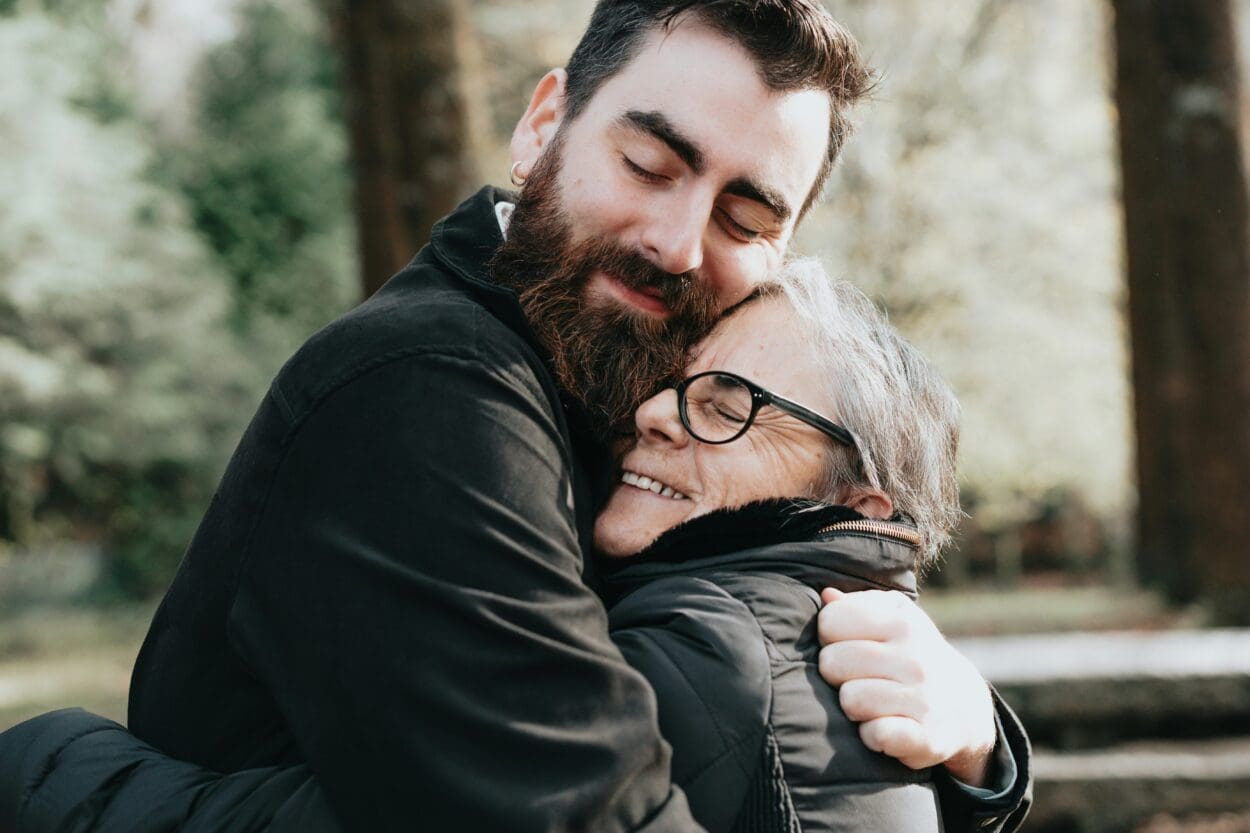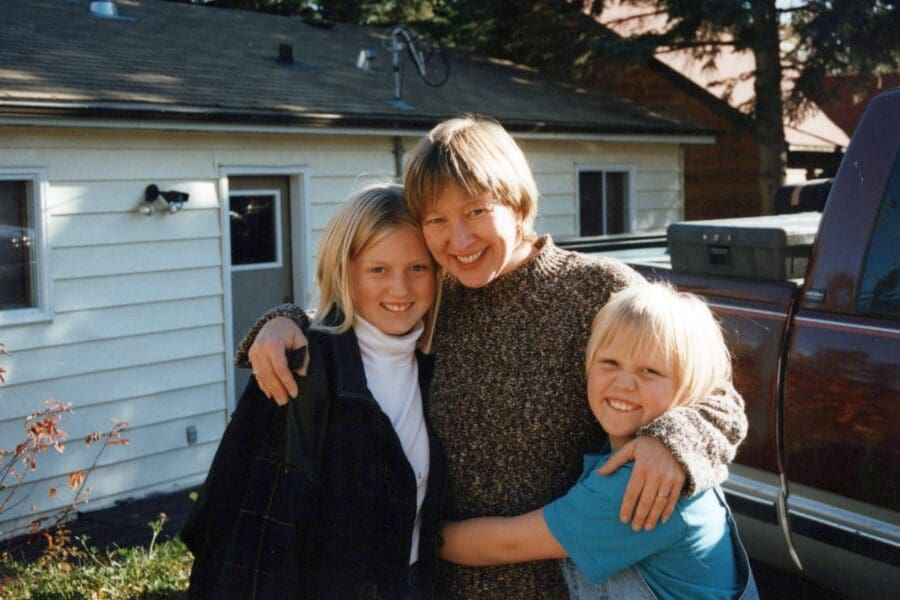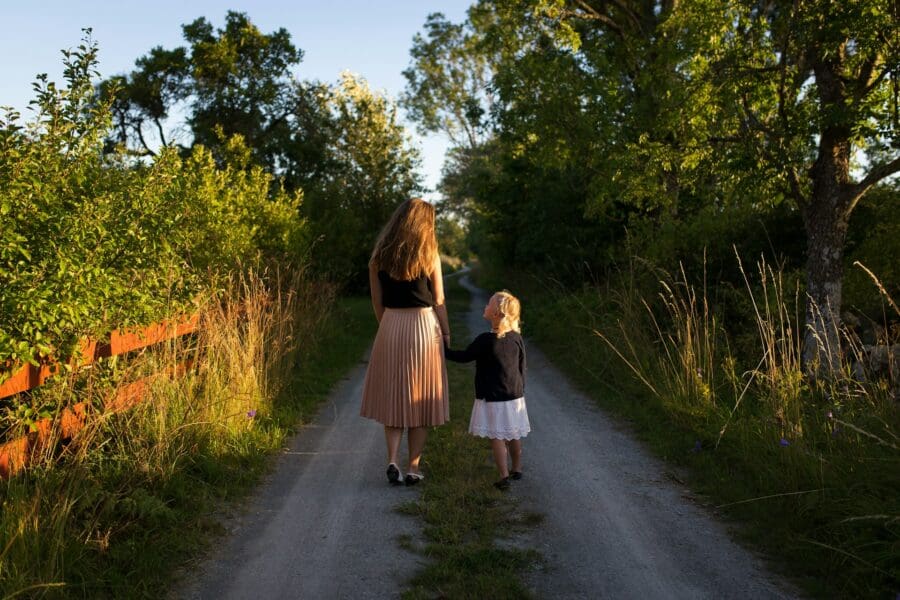Grief can be an exhausting and draining emotion that will take up a lot of your energy and attention. At times, it feels like a heavy weight that is lying on your chest, impossible to escape. At other times, it is some sort of shadow that follows you wherever you go. You might not feel it constantly, but it’s there. It’s always looming, always attached to you.
Grief can be incredibly tricky as it can be caused by many things: the loss of a job, moving to a new location, or the general feeling of missing out on something that you wanted so badly, like a certain life or career choice.
Grief related to the death of someone close to you can be the trickiest of all, especially when it occurs long before they pass away.
My mom was sick for many years. She battled addiction issues for all of her adult life, including when I entered the world. As you can imagine, our relationship was strained, to put it lightly. While most kids have memories of their moms picking them up from school, cooking their favorite dinners, and attending soccer games and school recitals, I remember having to put my mom to bed, calling the cops on her unsavory boyfriends, and making food for both of us because she wasn’t in the state to do it herself.
From a young age, I knew that something wasn’t right with my mother. And from a young age, I was preparing myself to say goodbye to her. Because of her lifestyle and the things she put her body through, I had a feeling that my mom wouldn’t be around when I grew up. I was hoping to get as much time with her as possible but school taught me that a lot of drinking and smoking always ended the same way.
As I aged and learned more about addiction, one thing became abundantly clear: you rarely ever see old addicts. They either clean up their acts or they succumb to the choices they made. When I was entering my teens, I was coming to terms with the fact that my mom likely wasn’t going to give up her demons. They had their hooks in her and it was unlikely that she was going to change. She was on a one-way road and there was no exit for her.
It wasn’t for lack of trying. I can recall multiple occasions when my mom swore up and down that she was going to do right, fly straight, and act well. Through teary eyes, she told me she was going to give up the bottle, put down the cigarettes, and devote herself to being healthy. To a young teen who desperately wanted a happy relationship with my mom, that was music to my ears. And I believed her with all my heart. At least I did the first time.
Upon her fourth or fifth attempt at sobriety, I had become jaded and disillusioned. If my mother wasn’t able to give up her addictions for me and my brother, she wasn’t going to be able to do it at all. It was then that I really wrapped my head around the concept of addiction. It wasn’t entirely a choice. Instead, it was a disease that would seep into every facet of someone’s life and disrupt and damage everything it touched. My mom wanted to be better, but she didn’t have the tools to do so.
So, at the age of 15, I started to grieve my mom’s passing. She was still alive and well, active and seemingly healthy on the surface. But I knew the day would come when she wouldn’t be around anymore and her years of bad behavior would take the ultimate toll. Every time I saw her puff on a cigarette, I envisioned her lungs darkening and an invisible clock about her head ticking down.
Grief is hard in so many ways. It’s impossible to predict and it can pop up at the oddest times. Sitting in a classroom, stuck in traffic, in the middle of a work shift – you never know when it’ll boil above the surface and make itself known. And when it flares up, there is no avoiding it. It can suffocate any other emotion and be the only thing you feel.
I would find myself thinking of my mother as a ghost even though she was still in the physical realm. I would fondly recall bittersweet memories of years before and yearn for a life that could have been. I would think about my mom as someone who was dead and buried instead of a person who was still alive.
Looking back now, I regret so much of that because I feel it robbed me of actually having a decent relationship with my mom, despite the addiction battle she was fighting. I know that I was simply preparing myself, getting ready for the emotional devastation that was sure to come down the road. But by steeling myself for passing, I was preventing myself from truly interacting in the present and being close to her.
In a sense, my mother was dead long before she was buried in the ground.
Over the next few years, Mom and I drifted apart more and more. Her choices led to her moving around a lot, switching jobs and locations as every road became a dead end. As for me, I was trying to make the right choices as a young adult and I found myself less and less tolerant of her bad decisions.
And every time she would call, I would be scared of picking up the phone. My heart would tell me, “This is it. This is the call you’ve been waiting for. She is calling to tell you she is sick and the end is near.”
That is no way for a young man to live. That is not a healthy or positive mindset but it’s one that I was stuck in for many years.
The call did come eventually, but not from her. It was my brother, phoning in the middle of a work shift to inform me that my mother had been diagnosed with a severe case of throat cancer. The news hit me like a ton of bricks but it didn’t surprise me. My years of preparation and grief had made me ready for the moment.
Three months later, she was gone.
I grieved in a more formal way after my mom’s passing. I went through the entire process and, eventually, came out on the other side. And when it was finally done and she was gone, I was able to look back and see how I had been training myself for years. I knew that my mom was headed down one path, there was no going back. And so I did what I had to to make peace with that.
When I look back on that period of my life now, I feel deeply remorseful. Remorseful that a young man was forced to live like that and remorseful that my mom didn’t make different choices. And, of course, I am remorseful that we never had the sort of relationship I wanted. But most of all, I am remorseful that my mom was a ghost before she died. I don’t blame the younger version of myself, I know I was simply doing what I needed to. But it feels like such a missed opportunity now.
Grief really is a tricky thing and you don’t know how you’re going to handle it. It can make you react in so many ways and it can pop up when you least expect it, including before someone actually passes away. It’s a natural and healthy part of saying goodbye but it’s also impossible to predict and anyone who thinks otherwise will be disappointed when grief outsmarts them.


Brandon Marcus is a writer born and raised in California whose work has covered all sorts of topics from pop culture to sports, politics, news, and more. He finds great value in the way that writing can touch the hearts and minds of people from all different walks of life and backgrounds and hopes to continue helping people for the rest of his life








Leave a Comment